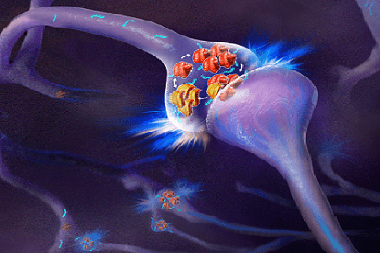Parasitic diseases >>>> Prion diseases
Prion diseases.

Prion diseases (transmissible spongioform encephalopathy) are a group of infectious diseases with a long incubation period, slowly progressing, related to parasitic infections.
The causative agents of prion diseases are low molecular weight particles of protein origin, called "prions". A prion is considered a mutation of a gene involved in the transmission of nerve impulses at synapses, such a mutated gene is neurotoxic and leads to cell death. Damaging the substance of the brain and spinal cord, prions turn it into a sponge-like substance. Prion diseases are inevitably fatal.
The mechanism of reproduction of prions is similar to viruses, that is, they use the host cell to increase the number. Prions are resistant to various external influences: heat, ultraviolet and gamma radiation, enzymatic treatment, chemical disinfectants and antibiotics.
A number of diseases: Scrapie, Mad Cow disease, Kuru, Fatal insomnia, Kreutzfeldt-Jakob disease, Gerstmann-Straussler-Scheinker syndrome are referred to as transmissible spongiform encephalopathies. The issue of attributing some diseases with progressive dementia to prion diseases is discussed.
Infected domestic animals (livestock: sheep, goats, cows; domesticated cats and dogs) and wild animals (deer, elks, antelopes, tigers, cheetahs, wild cats and dogs, minks) are considered to be the source of prions. In addition, bone meal, marrow and offal used for animal feeding can be a source of prion infection. Poorly cooked meat, offal, raw seafood eaten by humans can become a source of prion disease.
Prion diseases in humans can occur as a result of infection through contact with sick animals, consumption of food products made in violation of sanitary and epidemiological standards, as well as as a result of a family predisposition to this kind of disease.

Read

Read



























